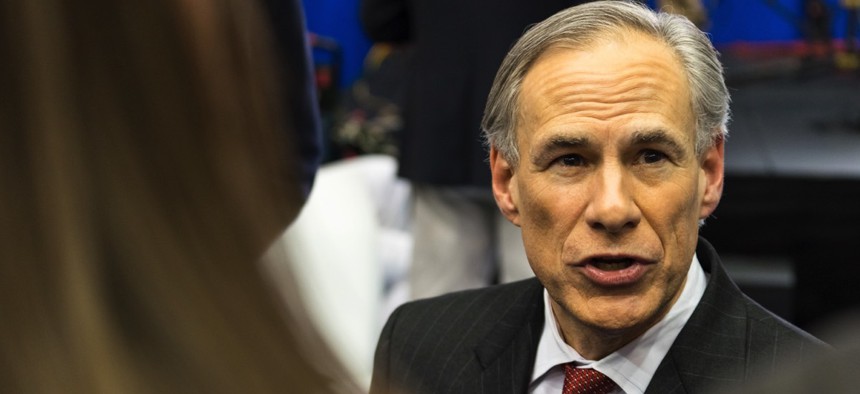Gov. Abbott Vows to Ban Texas Sanctuary Cities

Texas Gov. Greg Abbott.

Connecting state and local government leaders
The fight taking shape over national immigration policy is coming to a head in the Lone Star State.
In the immediate aftermath of the presidential election, pundits across the spectrum have marveled at the political and social divisions Donald Trump’s White House victory had laid bare—between the coastal communities and the heartland, between red states and blue states and between the elite and the working class, among others.
Another gap is widening—between conservative state governments and more progressive municipalities, especially those that are “sanctuary cities.” Such cities maintain policies that minimize cooperation between local law enforcement and federal authorities regarding the detention of undocumented immigrants. For a prime example of this, look no further than the fight that’s been taking shape in Texas.
Just as the Texas state lawmakers prepare to meet in Austin for their biennial legislative session in January, Gov. Greg Abbott has vowed to ban sanctuary cities in Texas, echoing a campaign promise from Trump to cut funding from such jurisdictions.
“I’m going to sign a law that bans sanctuary cities,” Abbott tweeted on Sunday.
This statement came in response to a question from a Twitter user who wondered what the governor’s administration might do to reverse the Austin city government’s protections for undocumented immigrants—protections which Austin Mayor Steve Adler reaffirmed soon after Election Day at a rally protesting Trump’s immigration policies.
“In Austin, Texas, we build bridges and not walls,” said Adler, according to the Austin American-Statesman. “Nothing that happened this week changes who we are as a community, our values or our culture.”
Adler is far from the only mayor to seize upon the sanctuary city model as a way to object to federal immigration policy. In Chicago, Mayor Rahm Emanuel has pledged to defy future Trump administration deportation efforts. Likewise, the mayors of Los Angeles, Philadelphia and New York have vowed to remain strong against President-elect Trump’s threats to cut federal funding in retaliation.
As The New York Times has pointed out, these cities, and others like them, stand to lose millions of dollars. For example, Oakland, California, stands to lose as much as $140 million in federal funding for services like homeless shelters, low-income preschool programs and meals for the elderly. And Los Angeles could be docked as much as $500 million out of its overall budget.
It still remains to be seen just how far federal and state officials will be willing to go to carry out these threats. But, one thing is clear, this is a game of political chicken that has the potential hurt citizens along with budgets.
Quinn Libson writes for Government Executive’s Route Fifty.

NEXT STORY: California's Replumbing Project to Save San Francisco Bay And Its Dying Delta





